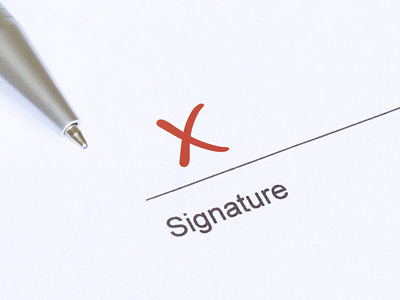What percentage of businesses for sale that are advertised and/or sold are pocket listings? What is the best way to find out about pocket listings? Are they advertised? Are they a big part of the businesses sold marketplace? In this Discussion ProIntermediaries and ProAdvisors discuss this topic.

Comments & Feedback From Pro Intermediaries & Pro Advisors On BizBen:


As a business broker, I look at myself as a matchmaker. My job is to find just the right fit between a buyer and a seller. As such, I start with either a really solid business to sell or a strong buyer who is actively and aggressively seeking an opportunity. Either way, I make sure they are contractually obligated to do business with us, not just loosely hanging around. A serious, genuine seller will not be interested in a pocket listing arrangement. They will want to market the business to as large an audience as possible in the hopes of finding multiple buyers who will compete for their company. There is one legitimate exception to this idea - the owner who is highly concerned about confidentiality.
Some businesses are truly unusual and difficult to advertise publicly. The very uniqueness which might attract buyers can also be a dead giveaway as to who they are. This is the only justifiable reason a seller would want a broker to pocket a listing. Otherwise, if it’s a case where a seller simply does not want to pay a fee, I would encourage them to try selling the business themselves. Good luck with that. Our normal course of business is to represent Sellers. That is the only business model that really makes sense in our industry.
As specialty brokers, we do sign Buyer Rep agreements which require the buyer to pay our fee, on single, specific introductions. If we place them in a deal they otherwise would never have known, they are happy to pay our fee.
We don’t have much use for pocket listings. We do have sellers sign a single-party listing, creating an introductory structure with a specific buyer. And they do work. But that’s not what I consider a pocket listing.
In real estate, brokers pocket listings so they can double-end deals and not share the fee with a buyer’s broker. In business brokerage, that’s not a big issue. Consequently I don’t see much point in a pocket listing. We don’t really do them.
 In my experience, "pocket listings" are a waste of time, energy, and opportunity. "If you find a buyer, I might sell my business." "When you have a buyer, then ask me about selling my business, but not before." "See my business, but don't let anyone know that you have a business for sale."
In my experience, "pocket listings" are a waste of time, energy, and opportunity. "If you find a buyer, I might sell my business." "When you have a buyer, then ask me about selling my business, but not before." "See my business, but don't let anyone know that you have a business for sale." I've found that when someone offers a broker a pocket listing then they are not really serious about selling their business. A pocket listing is kind of the equivalent of saying "broker, bring me a buyer and maybe I'll sell." Without advertising the seller would be doing himself a major disservice. Business brokers need a constant flow of new buyers who are inquiring about businesses for sale, and yes, sometimes a buyer will call on one business but end going to see another that the broker suggests, but since the vast number of businesses advertised end up not selling, and the high number of buyers who call end up not buying, the numbers just aren't there for a pocket listing to successful sell.
I've found that when someone offers a broker a pocket listing then they are not really serious about selling their business. A pocket listing is kind of the equivalent of saying "broker, bring me a buyer and maybe I'll sell." Without advertising the seller would be doing himself a major disservice. Business brokers need a constant flow of new buyers who are inquiring about businesses for sale, and yes, sometimes a buyer will call on one business but end going to see another that the broker suggests, but since the vast number of businesses advertised end up not selling, and the high number of buyers who call end up not buying, the numbers just aren't there for a pocket listing to successful sell.
 In my experience, a "pocket listing" is a rare occurrence ... and should be so. First, the seller is not served by a situation in which the only prospects for a sale will be those randomly encountered by a particular broker. Second, without a formal agreement between the broker and seller the business cannot be fairly or appropriately represented. And, third, such an informal arrangement is a legal minefield just waiting for one mis-step. And to avoid any misunderstanding, there should be a clear distinction between a pocket listing and a search by a broker for businesses not currently on the market that may fit the "wanted to buy" requirements of a prospective buyer.
In my experience, a "pocket listing" is a rare occurrence ... and should be so. First, the seller is not served by a situation in which the only prospects for a sale will be those randomly encountered by a particular broker. Second, without a formal agreement between the broker and seller the business cannot be fairly or appropriately represented. And, third, such an informal arrangement is a legal minefield just waiting for one mis-step. And to avoid any misunderstanding, there should be a clear distinction between a pocket listing and a search by a broker for businesses not currently on the market that may fit the "wanted to buy" requirements of a prospective buyer.
 It is not a myth. After a great deal of time in a business a broker gets to know a lot of business owners who, under the right circumstances would like to sell their business. For myself, I am not anxious to take these listings until the seller has a true incentive to sell. If I am going to be responsible to each selling client it will require a great deal of time and continuous updates. However, sometimes that right Buyer comes along that causes me to recall the business and I will contact the seller to see if he is interested. I would estimate that more than 1/2 of my sales come this way.
It is not a myth. After a great deal of time in a business a broker gets to know a lot of business owners who, under the right circumstances would like to sell their business. For myself, I am not anxious to take these listings until the seller has a true incentive to sell. If I am going to be responsible to each selling client it will require a great deal of time and continuous updates. However, sometimes that right Buyer comes along that causes me to recall the business and I will contact the seller to see if he is interested. I would estimate that more than 1/2 of my sales come this way.

 This is a good reason for Buyers to establish a relationship with the broker they choose to work with. Pocket listings are often times the best listings. These can include businesses where the sellers are very private and do not want the business listed. In other cases it might be a business where the owner wants to sell but is on the fence about the idea and needs a detailed offer in order to decide.
This is a good reason for Buyers to establish a relationship with the broker they choose to work with. Pocket listings are often times the best listings. These can include businesses where the sellers are very private and do not want the business listed. In other cases it might be a business where the owner wants to sell but is on the fence about the idea and needs a detailed offer in order to decide. 


